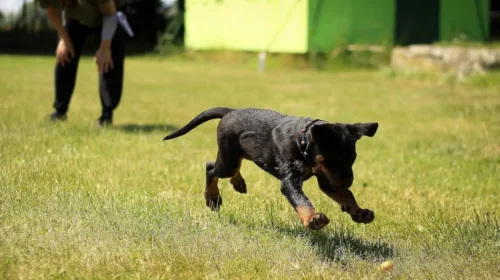Dog chewing
How to stop a dog from chewing? is a question often posed to us, by dog owners of Australia. In this article, we discuss the behavioural problem of chewing that many dog owners deal with on a regular basis. The problems of nipping, mouthing, or chewing in puppies, are addressed in the article ‘Biting and Chewing in Pups’

Why do dogs chew?
Dogs chew for a multitude of different reasons, some of which include:
- Boredom
- Curiosity
- Anxiety and stress
- Physical reasons – teething
- Displacement behaviour – itchy dogs

How to stop dogs from chewing?
Behavioural modification & management
The key in managing chewing in dogs is to identify and correct the underlying cause. Listed below are the common inciting causes, and basic principles behind their management and treatment:
- Curiosity – It is a normal behavioural trait for puppies and growing dogs to mouth and chew as they grow up. It is a form of learning for them and is important. This is best dealt with by adopting effective crate training so you can encourage chewing behaviour in the confines of the crate (away from valuables and with pre-picked chew toys).
- Boredom – This is dealt with by enriching your pets environment (lots of exercise, attention, toys, food filled toys, other pets, play-dates). This helps your pup expend physical and mental energy which thereby helps to prevent boredom.
- Anxiety – This is dealt with by identifying and treating the underlying cause of the anxiety whether it is caused by separation, storms, and so on. This is usually dealt with using reward based counter conditioning in conjunction with successful crate training. Occasionally, medications which treat anxiety may be used in conjunction with these behavioural modification techniques. And obviously a trip to the vet and behavioural specialist would be worthwhile in getting this under control.
- Physical Causes – Before assuming there is a behavioural disorder, pop in to your veterinarian and get a full physical examination, including a complete oral exam. This should be done with any suspected behavioural disorder to ensure there isn’t a physical reason for the presenting symptoms.
- Displacement Behaviours – Your veterinarian may notice a problem which they feel is causing the displacement behaviour. So as mentioned above, always see your veterinarian to make sure there isn’t a physical reason why your pet is chewing.

Dog chewing
Chewing in dogs can be caused by a multitude of factors. Pop into your veterinarian and/or behavioural specialist, address the underlying cause, and you should be well on your way to treating the problem.




